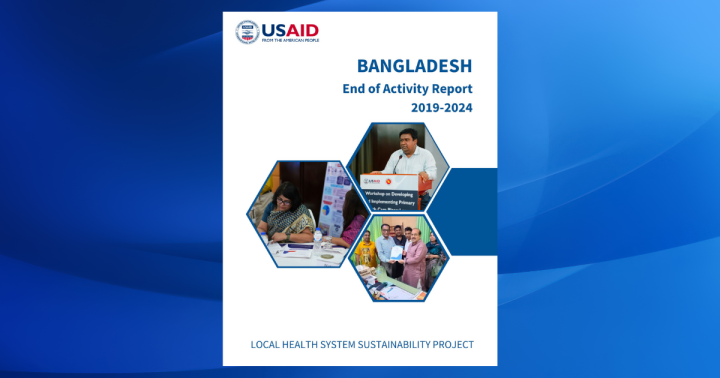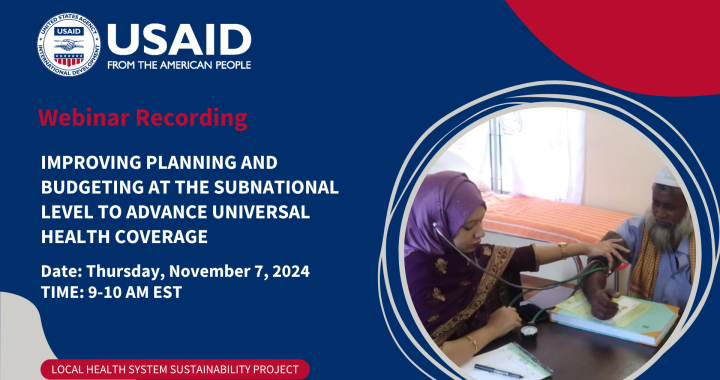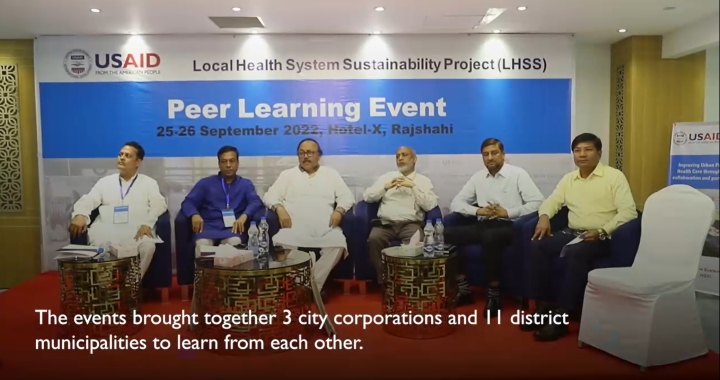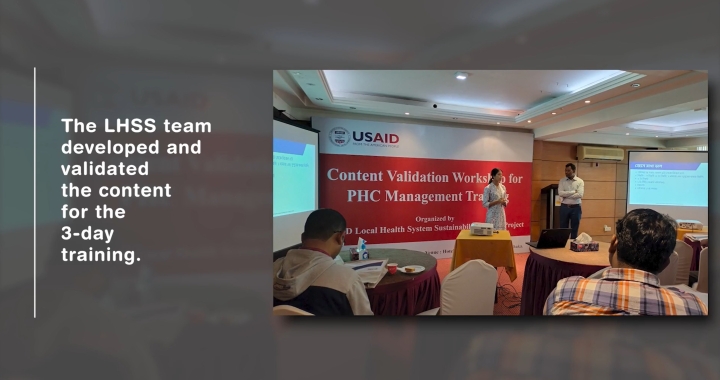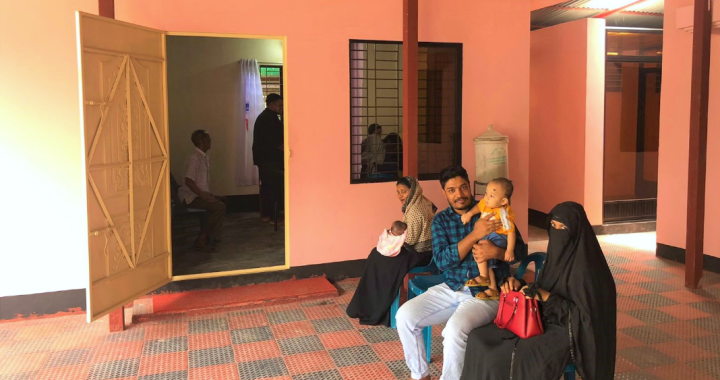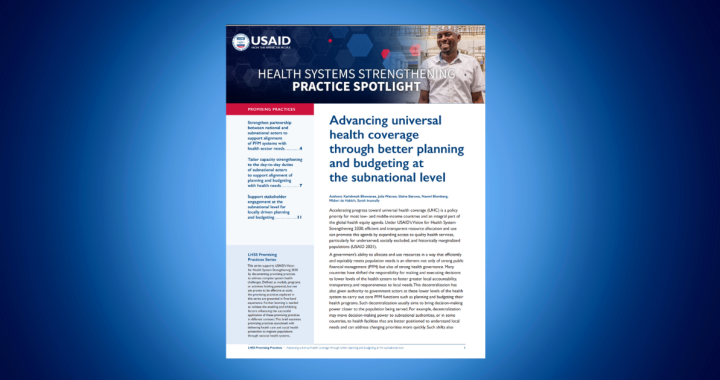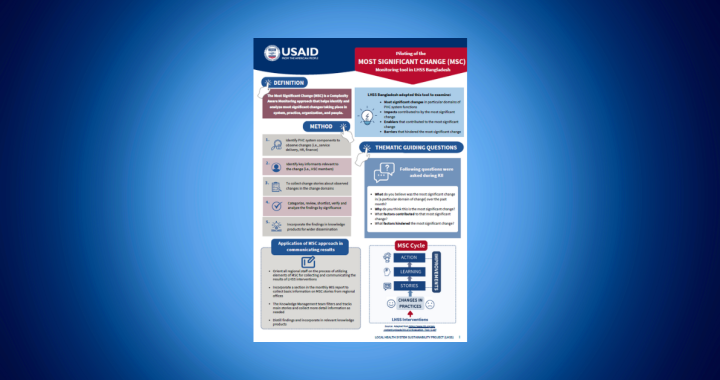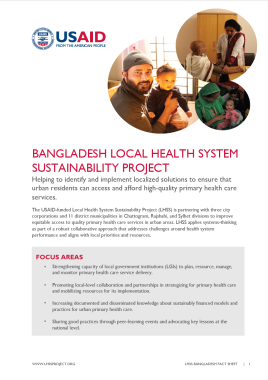The Government of Bangladesh is committed to achieving universal health coverage by 2030. However, rapid urbanization has put major pressure on health services and facilities, making it difficult to ensure equitable access to quality health care for the fast-growing population—particularly the urban poor. As a consequence, cities are experiencing large inequalities in health-related conditions. Bangladesh also faces several health financing challenges, which affect both urban and rural areas.
Approach
LHSS is partnering with three city corporations and 11 district municipalities in Chattogram, Rajshahi, and Sylhet divisions to improve equitable access to quality primary health care services in urban areas. LHSS applies systems-thinking as part of a robust collaborative approach that addresses challenges around health system performance and aligns with local priorities and resources. Focus areas included:
- Strengthening capacity of local government institutions (LGIs) to plan, resource, manage, and monitor primary health care service delivery.
- Promoting local-level collaboration and partnerships in strategizing for primary health care and mobilizing resources for its implementation.
- Increasing documented and disseminated knowledge about sustainably financed models and practices for urban primary health care.
- Sharing good practices through peer-learning events and advocating key lessons at the national level.
Achievements
With LHSS’s support, 14 LGIs made significant progress toward establishing systems that will improve access to primary health care services for underserved urban populations. These achievements include the following:
- All 14 LGIs revitalized health standing committees (HSCs) for coordination among health system actors for primary health care, which includes co-opted local health ministry representatives (e.g., offices of the Civil Surgeon and Family Planning).
- Regular convening of quarterly HSC meetings led to mobilization of resources and advocacy for a dedicated primary health care budget.
- Over 100 health service providers trained on Essential Health Services Package elements specific to urban community needs.
- Sixty-three municipality actors within Rajshahi and Sylhet divisions trained on primary healthcare management including planning, budgeting, resource mobilization, stakeholder engagement, and monitoring.
- Four new primary healthcare facilities opened in Rajshahi and Sylhet divisions through the collaborative approaches model involving the local health ministry and private sector partners.
- Bogura Municipality contracted out four primary health care centers through a public-private partnership, which will offer free medical services to 25 percent of patients.
LHSS Bangladesh completed activities in April 2024.

